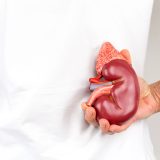

It may be unsettling to think about, but your intestines are home to hundreds of species of bacteria. Keeping these microscopic creatures healthy is essential to your own health, because an imbalance in your gut flora can have major consequences for your mood and even your skin. A healthy gut will not only break down and digest foods, but also absorb nutrients and eliminate toxins.
When something’s wrong with that microbiome, you can suffer from:

- bloating
- inflammation
- acne
- poor sleep
- obesity
The more species of good bacteria you have in your intestines, the more prepared you’ll be to combat illness. In other words, you’ll want to diversify your gut portfolio. As neurologist and New York Times best-selling author Dr. David Perlmutter says, “A healthy microbiome translates into a healthy human.”
So how do you grow a healthy biome? It’s easier than you think. We’ll tell you how to improve gut health naturally.
Try these super foods to improve gut health naturally.
1) Vegetables, Fruits, Beans and Legumes
You just knew it was going to be vegetables, didn’t you? Your doctor may encourage you to include more fruits and vegetables in your diet, but did you know they’re also great for your gut bacteria? In fact, there’s nothing better.
Your body can’t break down all the fiber that’s in fruits, vegetables, beans and legumes. However, certain bacteria in your gut just love to chow down on them.
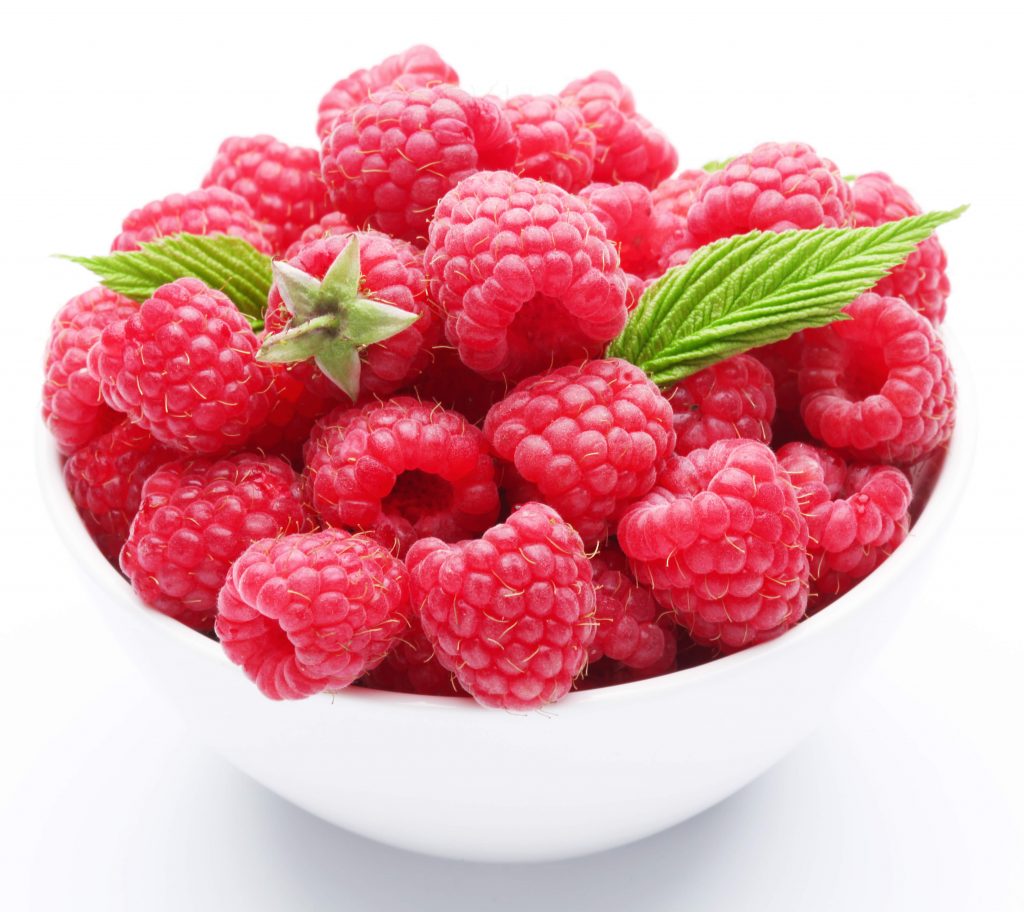
- Raspberries, artichokes, green peas, broccoli, lentils, kidney beans, pinto beans, and whole grains are all terrific sources of nourishing fiber.
- Broccoli and other cruciferous vegetables like kale, cabbage and cauliflower, contain sulfurous metabolites that microbes will break down into helpful substances that reduce inflammation. These metabolites, known as glucosinolates, flush carcinogens out of your colon and may reduce the risk of colorectal cancer.
- Mangoes have been shown to spur the growth of healthy gut bacteria, while also helping to reduce body fat and control blood sugar.
2) Fermented Foods
Yogurt, kimchi, sauerkraut, kefir and kombucha are rich in lactobacilli bacteria, which may reduce the bad bacteria that cause irritable bowel syndrome. As dietitian and founder of NAO Nutrition, Nikki Ostrower, explains, “Lactobacillus bacteria…crowds out bad bacteria in the gut and allows the beneficial gut flora to flourish. This helps to lower irritable bowel syndrome symptoms like gas, bloating, and indigestion. Also the sour taste in fermented foods are organic acids that help probiotics to really work their magic.”
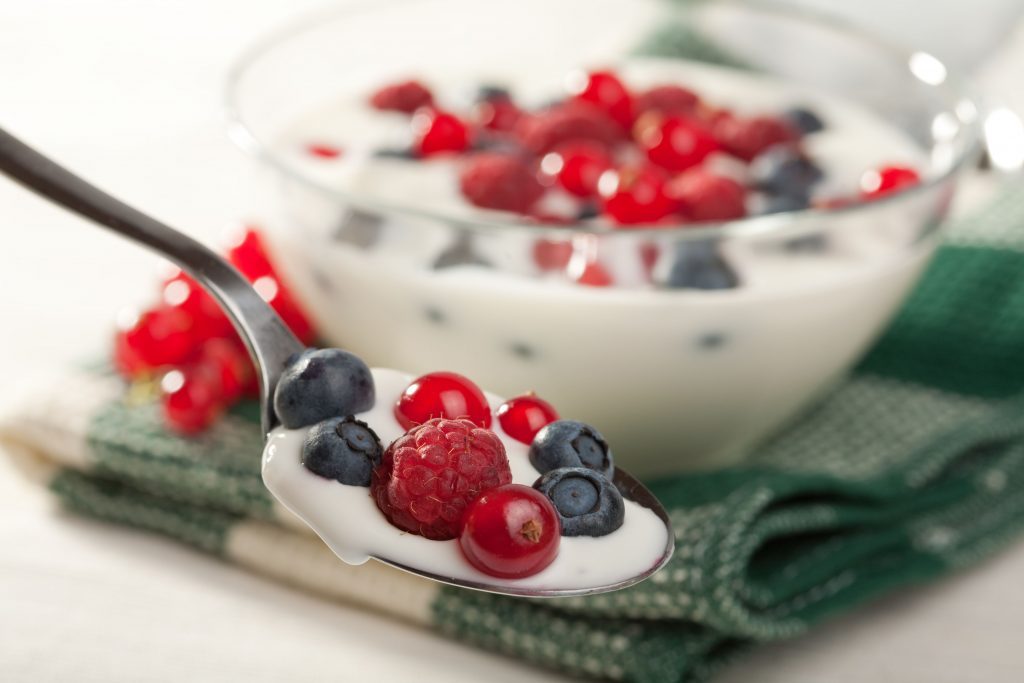
Natural yogurt (full-fat with no sugar added) contains a high volume of beneficial probiotics that “repair gut and other irritable bowel syndrome symptoms,” says Ostrower. “There are also beneficial enzymes that help improve digestion.”
If dairy doesn’t agree with you, there are also dairy-free yogurts made from soy, almond or rice milk. These may contain such beneficial cultures as S.Thermophilus, L. Bulgaricus, L. Acidophilus, and Bifidobacteria.
Some kinds of pickles are also rich in probiotics, though not if they’re pickled using vinegar. Look for labels that say “naturally fermented” on the jar. You may see bubbles in the liquid that signal live organisms are inside.
Feeling Adventurous?
If you’re feeling adventurous, you might want to try Natto – a popular dish in Japan that is not for the faint of heart. It’s made from fermented soybean and smells like pungent cheese. The most vivid description comes courtesy of New York Times reporter Richard Schiffman, who writes that Natto has a “mild, earthy taste and looks like a mishmash of tiny brown jelly beans suspended in white goo.”
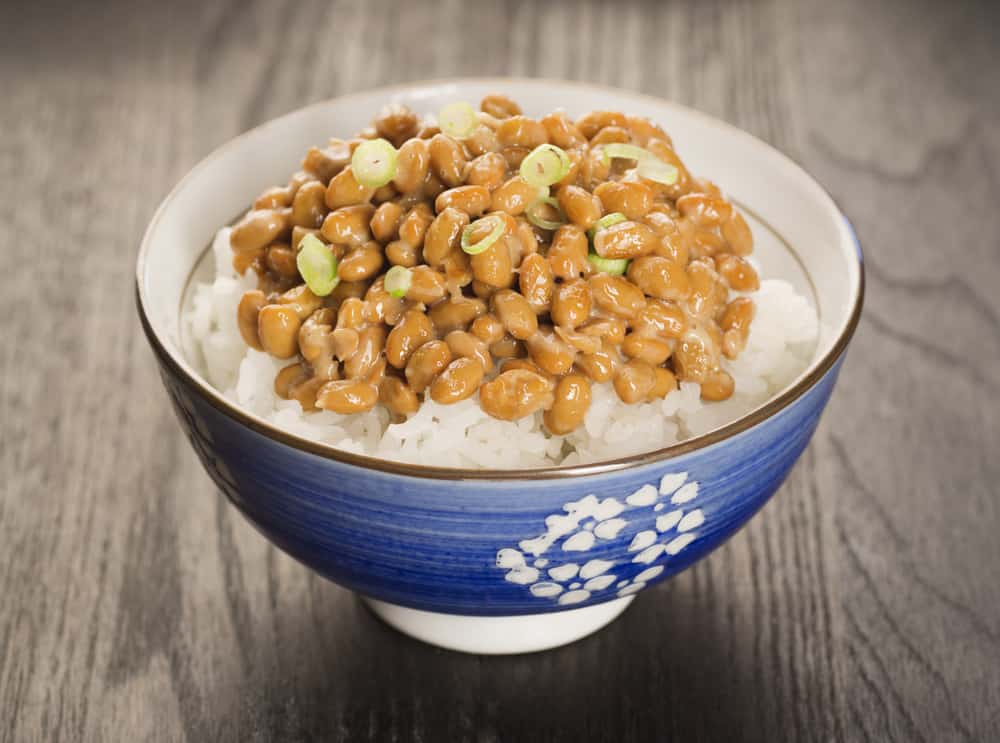
This food is commonly eaten for breakfast, along with rice, raw eggs and chives. Dr. Ann Yonetani, a microbiologist who cooks the stuff, claims that just one tablespoon of her Natto contains a thriving colony of Bacillus subtilis that is one billion strong!
3) Polyphenol-Rich Foods

You may not be familiar with the term “polyphenol,” but you’ve definitely eaten it before. Polyphenols are plant compounds that are found in several common foods like dark chocolate, red wine, grape skins, green tea, almonds, onions and blueberries. (Personally, we’re thrilled by any excuse to eat chocolate, and several health food companies have taken note. There are many brands that now offer prebiotic- and probiotic-enhanced chocolate bars. )
Not all of these foods can be digested by human cells but, once again, your gut bacteria will be more than happy to gobble them up.
In turn, these foods engender a range of superior health benefits, such as:
- reduced blood pressure
- decreased inflammation
- lower cholesterol
- reduced oxidative stress
Good gut bacteria like Bifidobacteria and Lactobacilli are especially fond of polyphenols. By eating the above foods, you cause their numbers to grow, which guards your GI tract against harmful bacteria like Clostridia and Bacteroides.
4) Wild Salmon
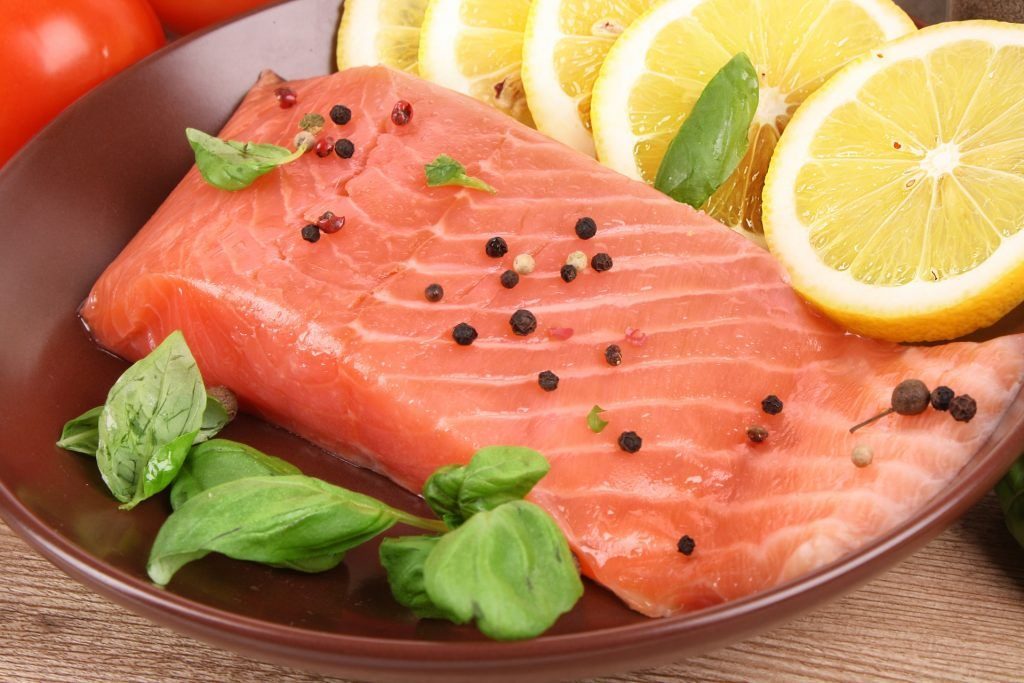
Wild salmon is just a great food in general. Its omega-3 is an essential fatty acid that your body needs but can’t produce on its own. Studies show that fatty acid may protect against some forms of cancer as well as chronic diseases like Alzheimer’s, asthma, depression, diabetes and rheumatoid arthritis.
Last year, researchers at Nottingham University and King’s College London examined 876 women and found a notable correlation between omega-3 intake and healthy microbiota. The study concluded that omega-3 nourished N-carbamylglutamate (NCG), a bacteria that has previously been linked to lower inflammation and obesity.
Mackerel, walnuts and chia seeds are also good sources of omega-3.
Probiotic Supplements for Gut Health, Improved Digestion and More
Need a boost of probiotics, but you’re not too fond of pickles? Don’t have time for a cup of yogurt? That’s what supplements are for!
One dose of Natural Wellness’s Ultra Probiotic Formula will add 35 billion living cells to your stomach and intestines. Its eight strains of probiotics support gastrointestinal and immune health and help to protect your microbiome from pathogenic bacteria.
Natural Wellness’s Digestive Enzymes supplement is specially formulated to break down proteins, carbs, sugars, fibers and fats, boost nutrient absorption, and alleviate gas and heartburn.
Our Colon Cleanser formula will help to flush out waste and toxins from your colon and soothe the tissue lining your digestive tract.
Conclusion
The foods listed above can surely help you reset and improve gut health. If eating all of these foods is overwhelming or possibly too expensive, you might want to invest in a powerful probiotic supplement to keep your GI tract running smoothly.





